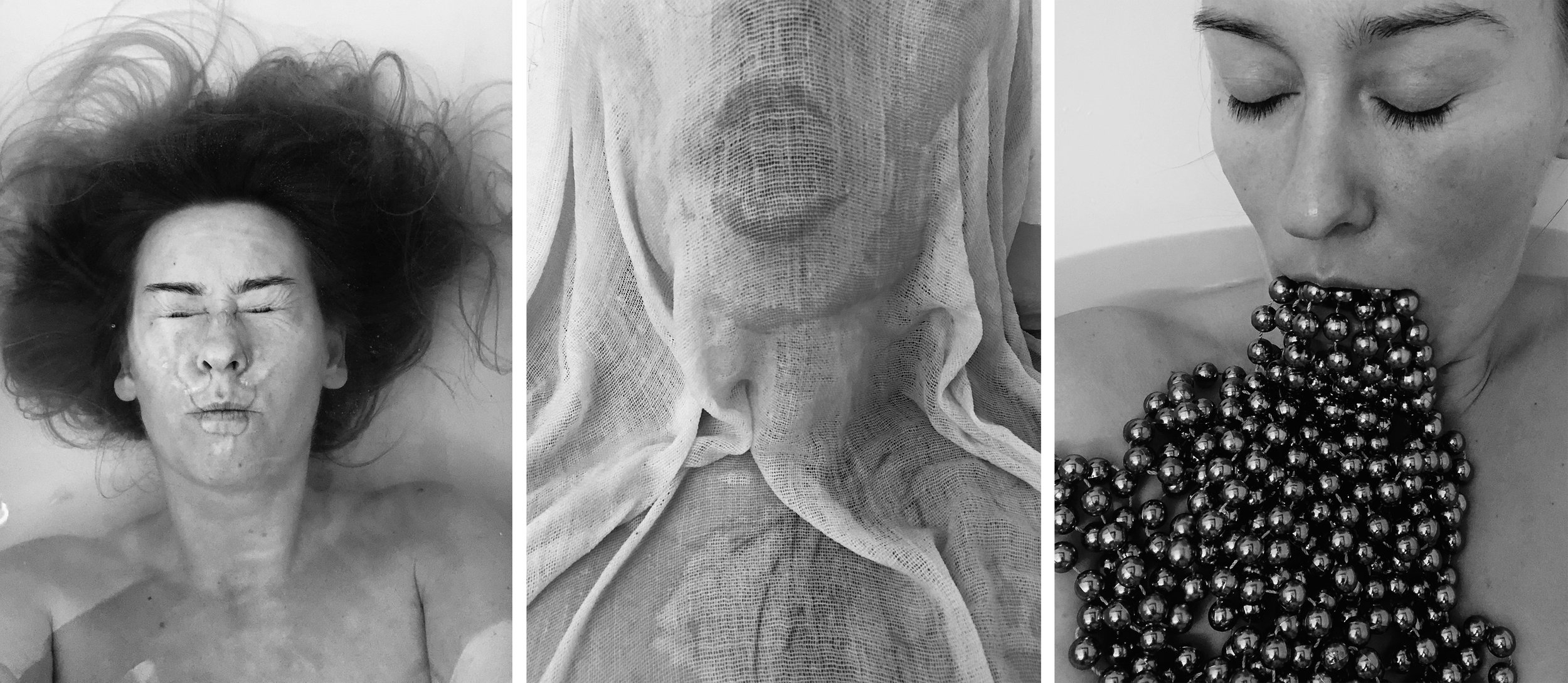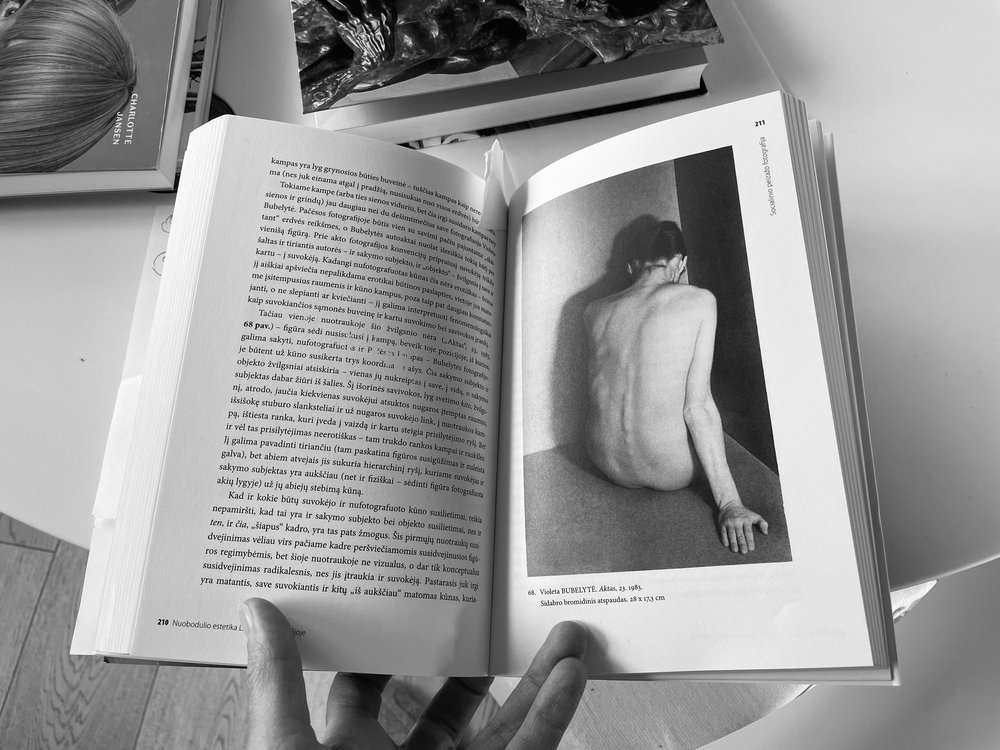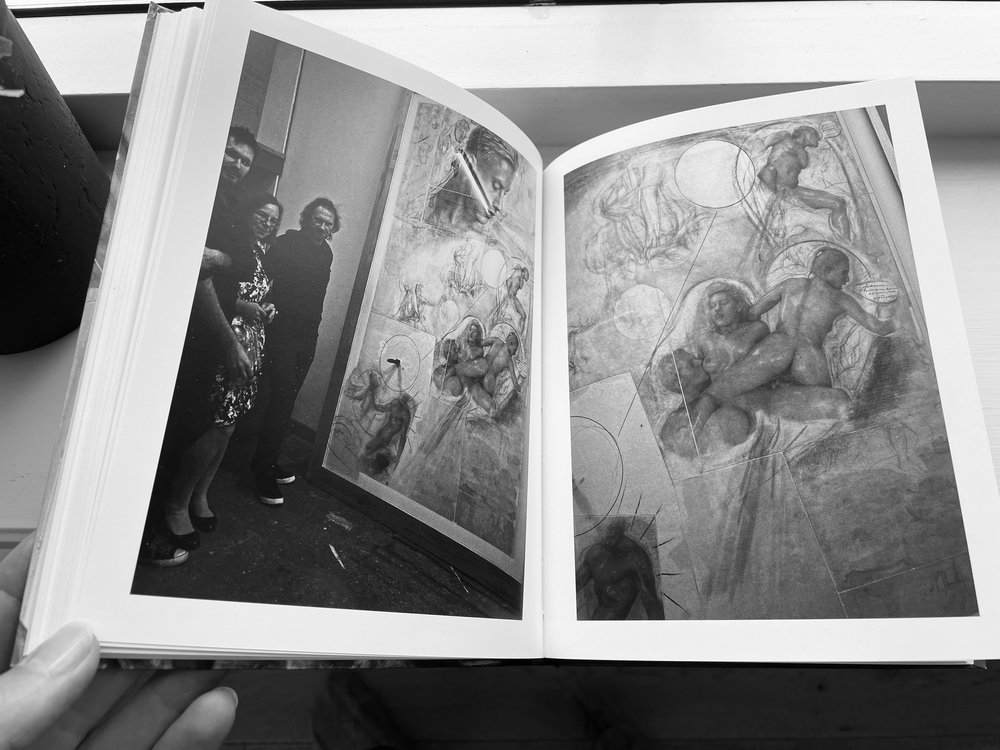This interview by Karen Grace was reprinted from the Tarantula: Authors and Art platform https://tarantulaauthorsandart.substack.com/
On a sunny day in June, photographer Kristina Aleksynaitè and I sat down for a good chat while our children ran around in circles and her husband Karolis made us a lovely lunch. Dear reader, I wish you could have joined us (perhaps someday we’ll start doing interviews as podcasts, who knows!) but grab a cup of tea (my usual) or coffee (Kristina’s) and read along... you’re in for a treat.
TARANTULA: So happy to be with you today, and on the summer solstice no less! For our readers at Tarantula what can you tell me about your journey to becoming a photographer? When did you fall in love with photography?
Kristina: I guess the beginning was my mom taking me to exhibitions. You know we lived in the Soviet era and so much was forbidden. You couldn't see a lot of art in your daily life so my mom would go to some galleries or museums. She was very interested in it always, so she started taking me to galleries and somehow we ended up often in the photography exhibitions.
So when did you first pick up a camera?
I was, 15 or 16 when I got my first. Everybody got film cameras in those days. I went to after school classes and we learned to do everything by ourselves. We would photograph, we would go to the dark room and do that whole process. It was long time ago, we didn’t have digital yet... so I started but you know, I chose a different profession - I forgot about photography.
But you became a journalist. Was there any photography involved in being a journalist?
When I was a journalist I had to find the picture, but usually I would ask some photographers for what I needed. I think how I started photographing professionally was as a culture journalist I would go to different events to write and to photograph a little bit.
So you were doing your own photography for the stories that you were writing?
Yes, and one time I went to Moscow to Eurovision! It was the main event, and I did really bad photos. I got this good camera from my editor and I couldn't use it properly. I used it like an automatic, and it had these beautiful good lenses. And you know, when I came back, it was all blurry and the shutter speed wasn't right. And it was dark, a lot of emotions, you know. So I decided I should learn! That was it, I went to some courses, and that's how it really started.
When I had my kids I experimented taking photos with them. But I'm a self-learner. I didn't go to art school, or to university. So I learned everything by myself or with some small courses. After that, when I was at home with my kids, and I was wondering, should I come back to writing but I noticed in myself that I enjoyed photographing more, and then I saved the writing for later. Somehow it just pushed all writing to the side, and photography went in front. It happened very naturally.
You wrote about how there are almost no pictures of you as a kid, and that’s hard. So I wonder, how does photography fit into your life with your kids? How does that work for you?
Well, at first I was obsessed with photographing them. Since I didn't have my pictures I always wondered, if I'm missing something, you know? I wonder, how was I? What did my cheeks look like? I don't know that because I can count my pictures on my two hands, and they’re from far away. You want to know yourself, and from all the stories, my mother or father tells, it's very different. I want to see me. So I started photographing everything, all the things. But suddenly after about three years I lost all my data. My little one just dropped the hard drive. Oh. And it was so traumatic for me! Of course we live in such a world where so many grandmothers photograph, right? And we had done some photo shoots of them. But, so many were gone – like from when I gave birth! Oh it was so hard, but after that I started looking differently at the pictures and that maybe I don't need so many. I don't need, you know, 100 pictures from one birthday, right? Just a few of them. I started to appreciate it more.
Still, I want them to see different perspectives on their childhood. Real life is not like when you do a photo shoot and everybody looks perfect in the picture. I want to photograph them from different angles, different sides. It doesn't have to be very pretty. I don't edit pictures of my kids or daily life. It's very important for me. Not so beautiful, you know? Sometimes we have dirty dishes and hair like we just got out of bed. I like it not dressed up. School portraits are fine and that's enough, but it's not our life. I like that I'm creating some kind of story of them, like I saw them, and I'm really seeing them in their childhood. Also, they are photographing. Selfies for them are fun, or they are filming. So it's their story - they can recreate and remember something.
Photography is such an interesting piece of modern memory, right? When I look back in my memory about my childhood, I very frequently see events through a picture, that somebody else took. My memory is so closely related to the photos. When I look back, I don't see the things that happened through my own eyes. I'm seeing it through the photograph of what somebody else saw of the moment. There are different kinds of memories like that. But I'm also remembering it as a kid, looking at the photo albums, and hearing the stories about what happened. Photography adds in another layer of how to hold onto those memories. It's different thinking about how you personally experience it versus how other people see you in that moment.
Right. In this moment, here’s something I wasn't seeing, or that's what it would feel like to see him... I was a very quiet kid, never caused problems, I sat quietly and played... and there is this experience of being you. My parents were working a lot, so my brother and I were quite independent - it was quite difficult to experience. So my kids, I want them to feel, to see, to be seen. I spend a lot of time with them. I asked my mom, why didn't they take a picture? But they just didn't think about it...













